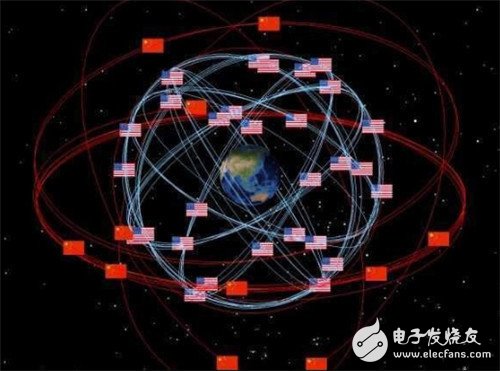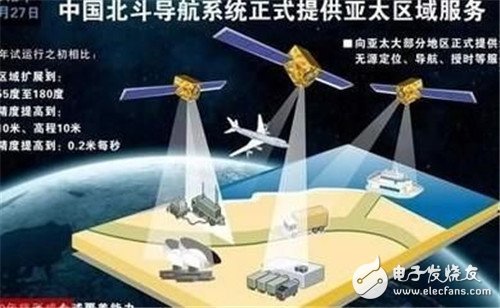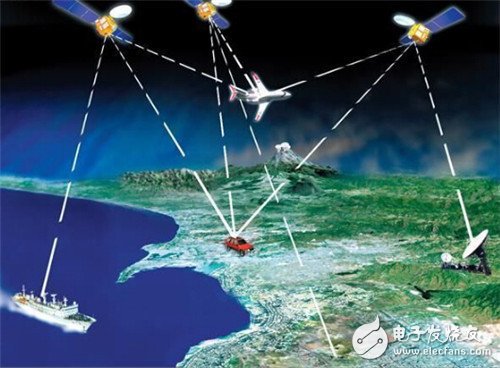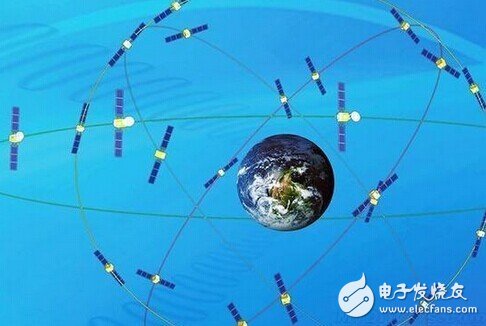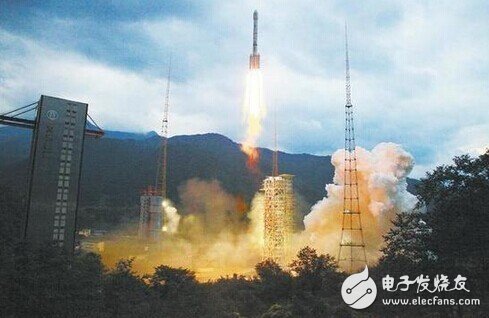At present, there are only four countries (including the European Union) that can develop and put into use the navigation satellite system in the world. In this field, China is the latest to start, but it is also the fastest growing. Now our technology is not only ahead of Europe, but may even become the navigation satellite that is most trusted by other countries in the future. Military experts said that during the development of China's Beidou system, it has experienced a difficult stage. Because China lacks corresponding technical reserves, the "first generation" effect of Beidou is not ideal. At that time, it was catching up with Europe to engage in Galileo satellite navigation. Satellite navigation is a super-burning job. At that time, the EU wanted to find someone to cooperate. China is just because the "first generation" of Beidou is not arrogant, it is naturally a hit and promised to invest 300 million euros in "deposits." The EU's subsequent practice is really "not authentic", and it has brought in India and Japan. This not only involves China's share of the Galileo system, but also China's core interests. Therefore, China finally decided to "single-handedly", but the "deposit" of 300 million euros in Europe considered that China's "default" did not return. At present, when the EU's Galileo satellite navigation is formed is still a distant event, and China's Beidou satellite navigation system has long been put into use. The first launch of the 2017 "Beidou III" system is scheduled to be completed in July, and several rounds of double-star launch will be implemented. Six to eight satellites are planned to be launched during the year. The "Beidou No.3" system adopts the integrated design of inter-satellite transmission and ground-based transmission, and realizes the link intercommunication between high-rail and low-orbit satellites and ground stations. According to the previous plan, the Beidou system will complete 18 global satellite launches in 2018 to provide basic services. These 18 satellites are reasonably distributed in orbit. From the mathematical point of view, they have met the requirements of seeing four satellites at the same time in any position in the world. However, considering the constraints such as occlusion, the real global network needs at least 24 satellites like the GPS system. . China's Beidou navigation system is composed of five geostationary orbit satellites and 30 non-stationary satellites. The Beidou needs to launch three tilt-synchronous orbit satellites. Although these three satellites are not completely stationary with the ground, most of the time, China still has Can see, so it's great to help the system immediately. China's "Beidou" system Another reason is that because Beidou works with passive receivers like GPS, there are two unique functions, namely, using active receivers (the receiver actively signals the satellites) and sending and receiving short messages ( Satellite SMS), so 5 geosynchronous orbit satellites are required to be sent for both functions. If satellite navigation is mentioned, people often think of GPS. Nowadays, people can think more about the domestic Beidou navigation system. Although this system has not started to provide services for a long time, as an emerging navigation system, its function needs to be developed and applied. To be improved, we are full of hope for its future. China's Beidou system is currently the most advanced satellite navigation system At present, the Beidou system provides service areas only to the periphery of China. However, since the opening of the service, the operation has been stable and reliable. Last year, the output value of China's satellite navigation industry reached 170 billion yuan, which produced huge social and economic benefits. Its use is definitely not only convenient for our life, but also for military applications. It is necessary to remove the situation of our system, and there are many applications to choose from. Of course, this also makes the opponent not a good thing. The US military has already begun to look for ways to deal with the Beidou system. It is generally divided into two types of means. The soft means are being implemented: 1, dry worry, 2, crack. China's Beidou system is currently the most advanced satellite navigation system A few years ago, when the Beidou system was in the test phase, it was subjected to artificial electronic interference. Later, we found the source of interference and used technical means to solve the interference problem. In fact, the working principle of the Beidou system is quite different from that of the GPS system. The interference technology against GPS is not applicable to the Beidou system. It is only a few years before the Beidou is put into use. From a technical point of view, it is necessary to develop a very targeted interference. Technology, at least it is not a short thing. Another is to study how to crack the technology of Beitou. This has already been implemented. Not long ago, this news came out: Some people cracked the civil coding rules of the Beidou system. Specifically, a Chinese female student studying in the United States, during her Ph.D. in Stanford University, used the Agilent 89600 vector signal analysis system in the GNSS monitoring station of the school to cooperate with its dedicated VXI bus test equipment. Cracked the code of the Beidou civil terminal signal coding in China. This has led many people to think that the Beidou system has been cracked. In fact, only the civilian signal coding rules have been disintegrated. However, this set of rules is for civilian use, and there is no need to crack. We must also disclose things. In fact, it is only the client's code, it does not involve the operation of the entire Beidou system, and even if we only need to change a coding rule again, then all efforts will be zero. After all, the entire system is in our hands. Military signal coding uses a higher level of coding rules, which is simply impossible to crack. GPS also has a coding system, but no one thinks that the significance of cracking it is significant. What is the purpose of cracking? Can I use the Beidou system or the pirated client for free? In addition to adopting soft means, the United States is also prepared to take the lead and use the second type: hard means, that is, direct destruction of the Beidou satellite. The United States is the world's leading R&D country for anti-satellite weapons. It now has relatively mature anti-satellite weapon technology, including many types, from basic land-based anti-satellite missiles to the latest lasers. Of course, directly destroying satellites is tantamount to triggering satellite warfare. Therefore, the United States has taken considerable care of it. In fact, the bigger problem is, let’s not forget that the US GPS system is more fragile. On the hard way, China also has anti-satellite technology, no worse than the United States. On the soft means, the interference technology against GPS is developed for decades, which is simpler than the interference of Beidou. The opposite equipment can be purchased almost online. The US plan will not be reached, just remind us that the struggle is ubiquitous. Others are also studying how to fight against Beidou. Although the plot has not been successful, we still raise our vigilance, but this is also a good thing, reminding us to strengthen security, in fact, played a facilitating role. Wonke Electric CO.,Ltd. , https://www.wkdq-electric.com